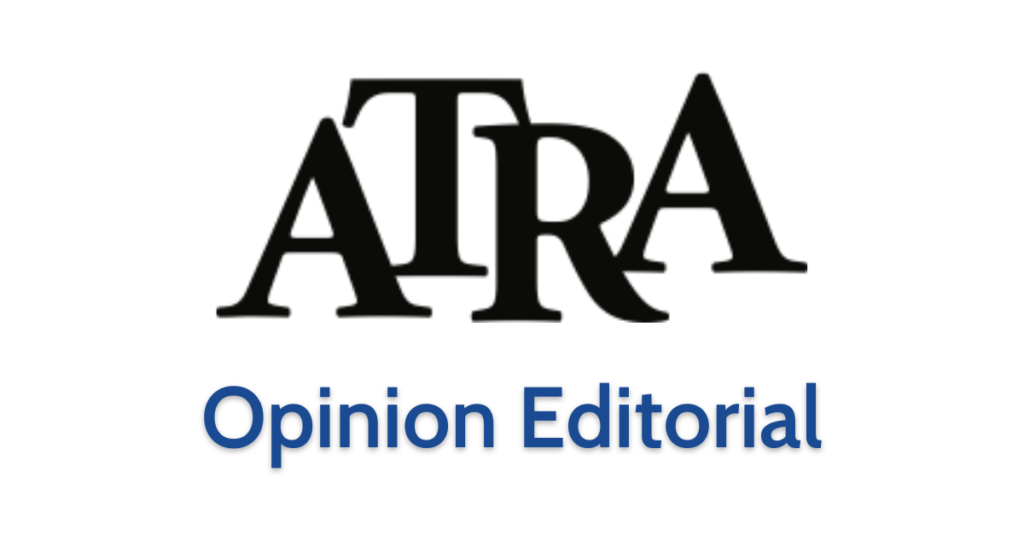
A Call to Halt the Onslaught of Litigation Tourism
This isn’t just about legal technicalities; it’s about New Yorkers’ livelihoods and ability to make ends meet.
All hope may not be lost in the “judicial hellhole” that is New York City. After state lawmakers passed a bill that would expand personal jurisdiction and invoke legal chaos, Gov. Kathy Hochul, thankfully, vetoed the bill for a second time.
While visitors may be lured by the lights of Times Square or the tranquility of Central Park, the local courts and judicial system should never be treated as a tourist attraction.
This concern looms large as we witness critical jurisdictional safeguards erode before our eyes. Defendants once were protected from being hauled into plaintiff-friendly courts with no genuine connection to a lawsuit, but that protection is fading quickly.
This year, the U.S. Supreme Court’s Mallory v. Norfolk Southern Railway Co. decision exacerbated the country’s existing forum shopping problem when it rejected a constitutional challenge to Pennsylvania’s law. In short, the Supreme Court expanded certain state courts’ jurisdiction over out-of-state companies, leaving doors open for plaintiff-friendly courts to flourish.
Pennsylvania seized this opportunity and took it a step further. In November, the state supreme court’s Hangey v. Husqvarna decision opened up plaintiff-friendly county courts to even more cases lacking a direct connection to the venue. The ruling ensures cases are filed in the most plaintiff-friendly counties in the state, further exacerbating forum shopping.
This new expansion comes from the Pennsylvania Supreme Court’s 2022 elimination of the state’s venue rule for medical liability cases. Here’s where New Yorkers should pay attention — medical liability filings in the notorious Philadelphia Court of Common Pleas nearly doubled in 2023.
Such expansive application of venue rules raises concerns that all defendants nationwide will now be dragged into these courts and raises the question of whether they can receive a fair trial.
This may seem like a distant concern, but New York lawmakers have twice passed bills attempting to emulate Pennsylvania’s approach. Commendably, Hochul vetoed the bill, protecting New York from an unnecessary legal quagmire. The bill mirrored Pennsylvania’s registration statute and sought to expose registered out-of-state companies to New York state courts’ jurisdiction.
But the fight is far from over. Georgia’s Supreme Court has adopted a similar approach, expanding liability and making the state more attractive to traveling trial lawyers seeking plaintiff-friendly courts.
The playbook is clear — eviscerate state venue barriers and open the floodgates to cases with no real ties to the jurisdiction. If trial lawyers succeed in their agenda, we’ll see clogged courts and trials with significant delays.
For plaintiffs’ attorneys seeking a big payday, it’s easy to see how these courts become financial havens. Yet, New York taxpayers bear the brunt of the financial burden associated with lengthy litigation.
Consider the broader economic impact: New Yorkers pay more than $2,013 annually in a “tort tax” — one of the highest in the nation. Moreover, excessive tort costs lead to the loss of more than 375,000 jobs annually. This isn’t just about legal technicalities; it’s about New Yorkers’ livelihoods and ability to make ends meet.
The dangerous developments in our legal system are not just a national issue. They hit close to home. The assault on jurisdictional requirements threatens the stability of our local businesses and the efficiency of our legal proceedings.
It’s critical to ensure our courts serve community members first and foremost and not become preferred destinations for entrepreneurial, high-stakes litigation.
Hochul took a step in the right direction by vetoing misguided and expansive legislation. It is hoped the legislature will take these vetoes to heart and stop sending these types of bills to the governor’s desk, given her repeated disapproval.
In the face of this challenge, elected officials and judges must work to preserve the rights of all and ensure New York’s legal proceedings uphold fairness, efficiency and accountability — and not become a hub for forum shopping and legal exploitation.
Keep In Touch
Latest News
View all news
‘Highly Unusual’ Rehearing of Louisiana Case Raises Judicial Independence Concerns
Louisiana Supreme Court Waffles Under Political Pressure, ATRA Brief Urges Court to Stand Strong
America’s Top 9 Worst Judicial Hellholes®
Left unchecked, these jurisdictions will continue dragging down economic growth and undermining justice through rampant lawsuit abuse.
ATRA Commends J&J’s Plan to Resolve Notorious Talc Lawsuits
Claimants Given Opportunity to Vote on Plan; Judge to Reconsider Scientific Validity of Plaintiffs’ Experts
The Lab Whose Junk Science Is Fueling a Frenzy of Litigation
Legitimate consumer protection demands sound science and impartial analysis — not distorted data designed to manufacture lawsuits.
Lawsuit Advertising Frenzy Fuels Georgia’s Litigation Epidemic
Law Firms Spent $168M+ on 2.2M Ads in Georgia
Trial Lawyers’ Dual Grip on Pennsylvania Politics and Public Opinion Revealed in New ATRA Reports
ATRA’s Latest Studies Reveal Financial Influence and Lack of Transparency in Pennsylvania’s Campaign Finance Systems



